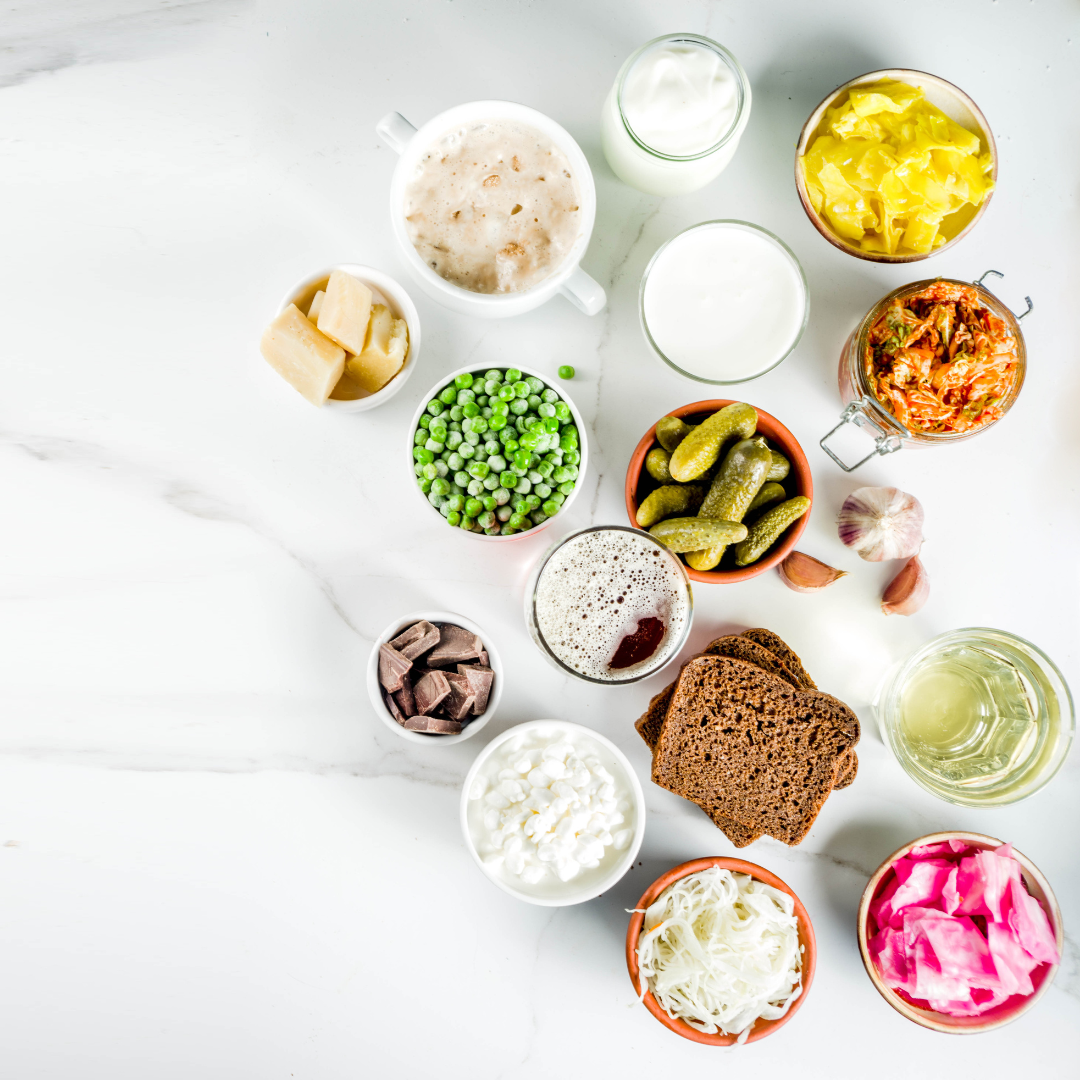
Nurturing Balance: The Perimenopausal Power of Fiber and Probiotics
Perimenopause is a transitional phase in a woman's life that can bring about a slew of physical and hormonal changes. While it's a natural part of aging, managing its symptoms can sometimes feel like an uphill battle. Two dietary components, fiber and probiotics, can be powerful allies in helping women navigate this phase with greater ease. In this blog post, we'll delve into the benefits of fiber and probiotics in perimenopause and how they can contribute to overall well-being, and help you understand why Vitaminis Gut Health can be a helpful addition to your perimenopausal diet.
Fiber: A Hormone Harmony Hero
As women enter perimenopause, hormonal fluctuations, particularly changes in estrogen and progesterone levels, can lead to a variety of uncomfortable symptoms. These include irregular periods, hot flashes, mood swings, and weight gain. Here's where dietary fiber shines as a natural aid in symptom management:
Hormone Regulation: Fiber-rich foods, such as whole grains, fruits, and vegetables, help regulate blood sugar levels. Stable blood sugar can aid in controlling mood swings and reducing irritability, which are common perimenopausal concerns.
Weight Management: Many women experience weight gain during perimenopause. Fiber helps with satiety and promotes healthy digestion, making it easier to maintain a healthy weight.
Digestive Health: Digestive issues like bloating, constipation, and irregular bowel movements can worsen during perimenopause. Fiber adds bulk to stool, facilitating regular and comfortable bowel movements.
Heart Health: Perimenopausal women are at an increased risk of heart disease. Fiber can help lower cholesterol levels and reduce the risk of heart-related complications.
Probiotics: Nurturing Gut Health and Hormonal Balance
Probiotics are beneficial microorganisms that live in your gut and play a crucial role in maintaining a balanced and healthy digestive system. Here's how probiotics can be particularly advantageous during perimenopause:
Hormone Metabolism: Probiotics assist in metabolizing hormones, which can help mitigate hormonal imbalances and their associated symptoms.
Mood Regulation: Gut health and mood are closely connected. Probiotics can have a positive impact on mental well-being, reducing the likelihood of mood swings, anxiety, and depression.
Immune Support: A strong immune system is essential during perimenopause. Probiotics boost the gut's immune response, helping to ward off infections and illnesses.
Digestive Comfort: Probiotics help maintain a balanced gut flora, reducing the risk of digestive discomfort such as gas, bloating, and diarrhea.
A Synergistic Approach for Perimenopausal Wellness
The real power of fiber and probiotics lies in their combined effects. A diet rich in fiber supports the growth and activity of beneficial gut bacteria, while probiotics help maintain a healthy balance of these bacteria. Together, they can provide a comprehensive approach to managing perimenopausal symptoms and promoting overall well-being.
In order to harness the benefits of both fiber and probiotics, include fiber-rich foods like whole grains, legumes, fruits, and vegetables in your daily meals. These foods not only provide essential nutrients but also nourish the gut microbiome. Probiotic-rich foods such as yogurt, kefir, sauerkraut, and kimchi introduce beneficial bacteria into your gut.
And if dietary changes aren't enough, Vitaminis Gut Health offers as much fiber as 1 cup of broccoli and as much probiotics as 2 cups of yogurt in a delicious berry banana juice, giving you the benefits of both probiotics and fiber in one easy serving.
Don’t forget that adequate water intake is essential for both fiber and probiotics to work optimally. Stay hydrated to support your digestive system. Also, introduce these dietary changes gradually to allow your digestive system to adjust.
Perimenopause can be a challenging time for many women, but it doesn't have to be an uphill battle. By embracing a diet rich in fiber and probiotics, you can take proactive steps to manage hormonal fluctuations, mood swings, digestive discomfort, and more. Remember that individual needs vary, so consult with a healthcare provider or nutritionist to develop a personalized dietary plan that works best for you. With the right approach, you can enhance your overall well-being and embrace this life stage with confidence and vitality.
